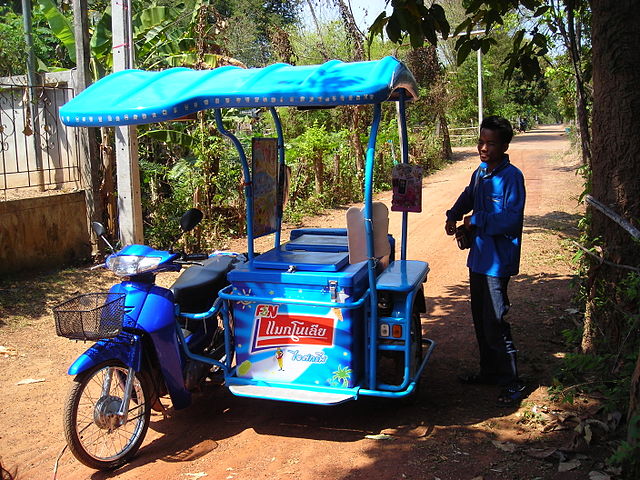iPaulina

Thai street vendors: why are they disappearing?
In 2014, after months of turmoil, Thailand’s military took control of the country’s Government and imposed martial law. Following the takeover, the army vowed to return ‘order’ to the streets, by which they meant removing protesters, but also removing the street vendors who frequently occupied them.The streets of Bangkok used to be buzzing with people selling an array of items, from fermented fish and cured buffalo skin to clothes and cleaning products. It’s a tradition that has been alive for generations, with numerous street vendors having worked in the industry for decades. Many stalls are passed down from generation to generation. On top of its ancient history, the markets are vast, with over 20,000 people estimated to earn a living through selling things on the street. Unfortunately, despite the strength of this tradition, the threat of the Government attempting to remove the markets is ever looming.
The difficulty with street vendors is that they encompass many health and safety issues. As described by a resident of the capital, “they take up a lot of space, forcing pedestrians onto the dangerous roads (as of 2016, over 24,000 people were killed each year on them), they pour oil down drains, which clogs sewers and worsens flooding, and don’t clean up after themselves, resulting in dirty, messy, and overall unpleasant streets.” Many residents of the capital would agree with these claims, and the Government has cited some to back up its actions. The street vendors argue that the authorities just want to clear the streets of poverty.
If the Government succeeds in its effort to clear the streets of vendors, Thailand is likely to suffer. Bangkok’s residents, especially those with low incomes, get nearly half of their meals from street vendors, as their food is usually cheap and accessible. In addition, street vendors increase the city’s appeal for tourists, and as tourism accounted for around a fifth of Thailand’s GDP in 2019, harming that industry could do significant damage to the overall economy.
Regardless, the Government is well underway in its ‘returning walkways to the public’ campaign – it claims to have shut down nearly 75% of unofficial markets and evicted around 12,000 street vendors. Despite this, it will be difficult for it to evict all the street vendors. The campaign began in 2014, so it has taken eight years to remove just over half of the street vendors from Bangkok. Removing the last 8,000 will be harder than it was to evict the first 12,000, and ensuring that evicted street vendors don’t return will be more difficult. Ultimately, the cultural, social and economic value of the street vendors might well mean this is a good thing.
Emilia, LV







